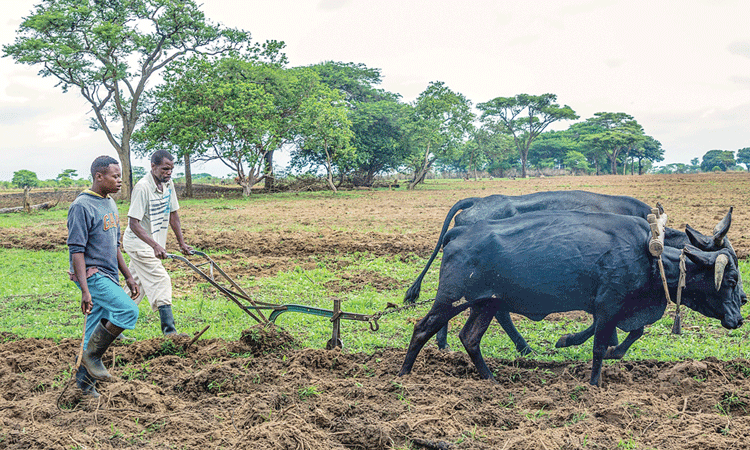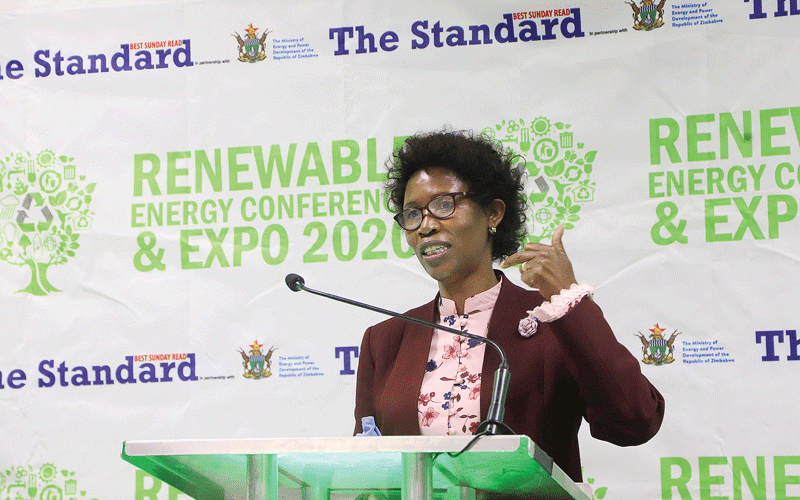
Gondai Bangidza seems to have struck gold as a resettled farmer in Zimbabwe’s eastern Manicaland province.
He brags about hiring full-time employees and seasonal workers at his farm.
Bangidza (34) is one of the thousands of indigenous farmers who were allocated land seized from white commercial farmers during Zimbabwe’s chaotic land reform programme more than two decades ago.
The groundnuts, soya beans, maize and animal husbandry farmer was allocated land in 2016.
Since then, he claims his farming has grown by leaps and bounds.
“Since 2016 to how, I have 15 full-time employees and 30 seasonal workers, who in this case are my contract workers,” Bangidza told Anadolu Agency.
He said he earned a profit of US$1 000 every two months from selling farm produce.
“Farming is a long-term project. Profits come after years and patience, along with being present,” he said. “You can’t do cellphone farming. Meaning, in my case, I have to be there on the farm seeing things done.”
- Chamisa under fire over US$120K donation
- Mavhunga puts DeMbare into Chibuku quarterfinals
- Pension funds bet on Cabora Bassa oilfields
- Councils defy govt fire tender directive
Keep Reading
Thanks to switching to farming with his family, Bangidza said, “the difference we have made as indigenous farmers is that we empower each other”.
“As black people, we are not only enriching ourselves but supporting others, and the food security situation in the country has improved owing to our determination as resettled farmers,” he said.
But the rosy picture painted by Bangidza should be compared to the one put forth by the United Nations World Food Programme, which said more than five million Zimbabweans could face starvation within months.
Bangidza tested success even as many resettled farmers have wallowed in dire economic straits, facing one crop failure after another.
Jonasi Ganduri (67), based in the Mwenezi district of Masvingo province, is a failed resettled farmer and he does not hide it.
“I personally regret moving into this farm that was once a productive lot when it was run by a white farmer before I came with other villagers around the year 2000,” Ganduri said.
He became part of the annual statistic of hunger-stricken citizens even as they pride themselves in taking ownership of land from white farmers.
Despite the failures on seized farms faced by farmers like Ganduri, many youthful resettled farmers are proving otherwise on land allocated by the government.
Many, like Cain Munangwa (25), a beneficiary of Zimbabwe’s land reform programme, boasts of occupying a 10-hectare property in Mashonaland West province.
Munangwa has for years farmed small-grains crops, maize, and beans and said he directed some of his yields to national silos through the Grain Marketing Board to help with Zimbabwe’s spates of droughts.
“Now, instead of producing for export purposes, we sell our farm produce to the national granaries which then aid the betterment of the nation, assisting in drought relief programs,” said Munangwa.
He employs eight permanent workers and said he “always hires some when the farming season approaches”.
Munangwa is content with his farming strides.
“I can safely say I make enough to give handsome salaries to my employees and cater for everything that includes my family needs,” he said.
Another beneficiary, 29-year-old Taurai Kandishaya, who said he was allocated a five-hectare farm in 2018, has not regretted going into farming.
“Farming is a priority,” he said. “To succeed in farming, one has to make it a full-time job.”
A goat farmer who breeds Boer and Saaben goats, who also doubles as a chicken farmer in the Goromonzi area, Kandishaya said he has five permanent laborers.
“The secret to successful farming is constantly consulting agricultural officers, and preparedness in terms of vaccines is also key,” he said.
Women resettled farmers like 26-year-old Nyaradzo Shoko from the Mwenezi district have equally made strides on land allocated by the government.
Shoko said she had become a steady employer of farm labour in her area, and many villagers look to her for seasonal employment.
But she has fared well as a subsistence farmer.
“I can now produce enough to eat even in a drought and always have extra to sell,” said Shoko, who grows small-grain crops.
Ruvarashe Ruzive (26), in Mashonaland West province, enjoys prosperity as a new farmer despite challenges that have pounded other resettled farmers.
“I have seen success as a resettled farmer because I haven’t walked this journey alone as the government, through the ruling party, has been very supportive through numerous schemes,” said the diehard Zanu PF supporter.
A large-scale cattle rancher, who is also into piggery, free-range poultry, goats, and sheep, as well as horticulture, Ruzive said she makes more than US$10 000 in profit annually.
“My views for the prospects facing young people in Zimbabwe have changed. The future is here in Zimbabwe. The future is here in this soil,” Ruzive said.
Paul Zakariya, executive director of the Zimbabwe Farmers’ Union, said he sees a new breed of indigenous farmers rising, thanks to the land reform programme.
“Through the land reform programme, although it has taken close to 20 years, we are now beginning to see many black indigenous farmers emerging as successful commercial farmers,” Zakariya said.— Anadolu Agency










